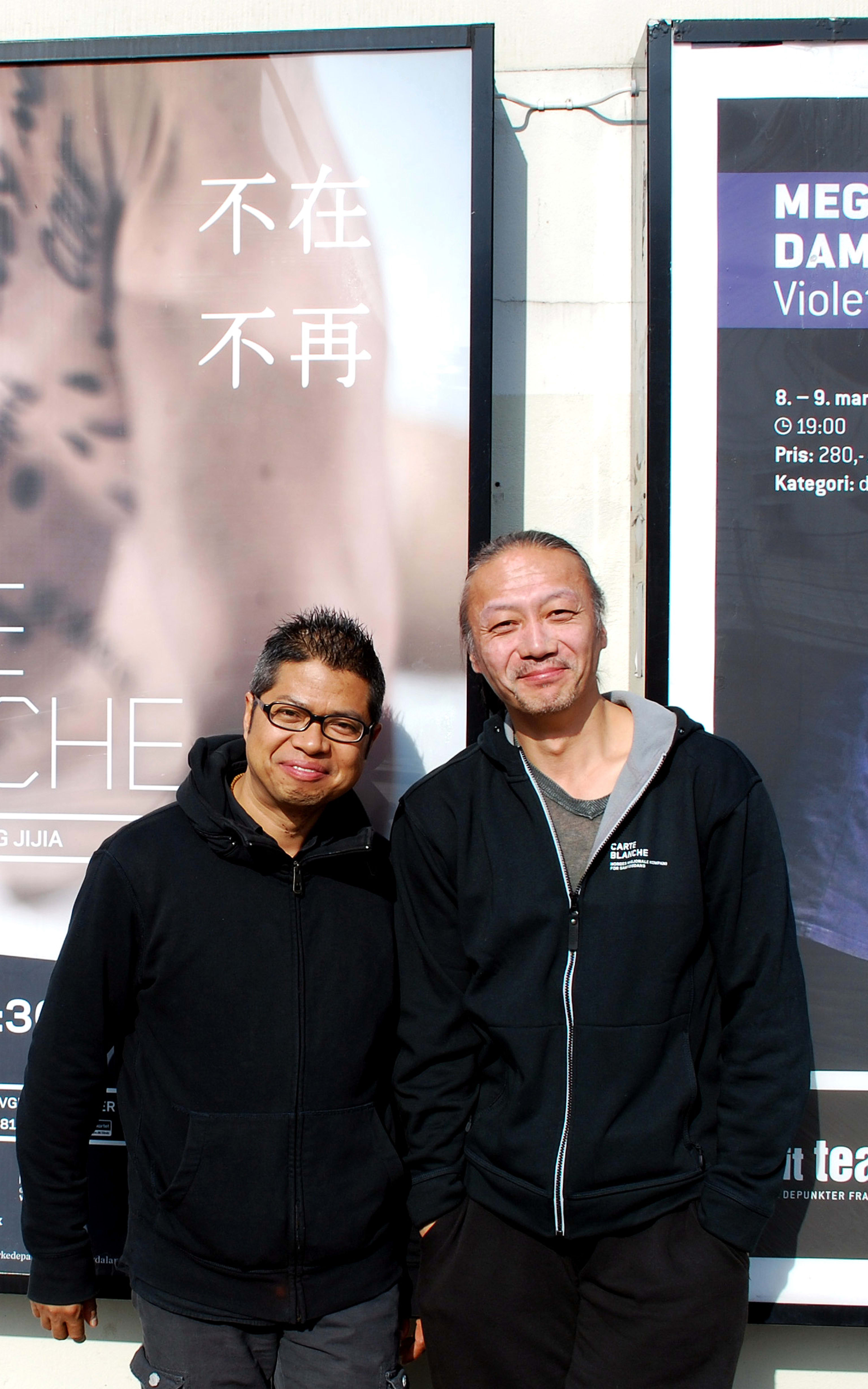
The search for the moment where life takes a new direction
- Home
- Festival
- 2020-and-before
- Articles
- The Search For The Moment Where Life Takes A New Direction
April 24, 2013
Together with musician Dickson Dee, Sang Jijia is on his way to finding the turning point of Carte Blanche's dancers.
‘The title Not here / Not ever gives me an opportunity to explore situations where we know we have to change, but we still do not know what the change will entail or the consequences the change may cause’, explains Sang Jijia
The choreographer based in China is sought after worldwide, and is currently collaborating with a Nordic company for the first time, accompanied by his regular musician and collaborator, the renowned jazz and electronica musician Dickson Dee.
Sang Jijia’s most important turning point in life came at the age of 13 when he was chosen to become a folk dance student. A delegation from the Chinese Minzu University visited his home town in Tibet recruiting new talents. The young shepherd, whose family had plans for him to be a monk, turned out to have the right physical conditions for dancing in addition to a good sense of rhythm. For six years Sang Jijia studied and learned 20 different folk dance traditions, each with its own set of rules and movement patterns. The second turning point came in the 90s when he saw China’s first modern dance company, which totally mesmerized him with its sheer spectrum of expression.
‘Seeing the Guangdong Modern Dance Company opened a whole new world for me. The freedom and range of modern dance seemed very attractive, and I skipped the university and began working with the company instead. But I have a lot to thank my education for. It laid a good physical foundation that enabled me to easily pick up new moves,’ says Sang Jijia.
In the years that followed, he received several international awards and scholarships that took him to New York. Later he studied choreography with William Forsythe in Germany and worked in his company until 2006.
For the past years Sang Jijia has lived in China, when he is not touring or engaged in other international assignments.
‘I notice that there are cultural variances when I'm working with different companies, but it's also true that dancing is a global language. When I start working with dancers I have never met before, I always take time to figure out how they can contribute to the performances with their own stories and personal expressions. I try to facilitate an environment that enables the dancers to improvise and share their experiences. That gives a special energy to the performances,’ says Jijia.In describing the theme in Not here / Not ever, he uses commas and question marks as metaphors. Using the relationship between people, between man and woman, between individual and society as a starting point, he looks at those special moments when one stops and asks oneself what will happen.
'And one can wonder about how this applies to this show as well,' says Sang Jijia smiling, adding that it is incredibly exciting to be exploring these situations with the Carte Blanche dancers.
'I am really looking forward to show the result to the audience!'









